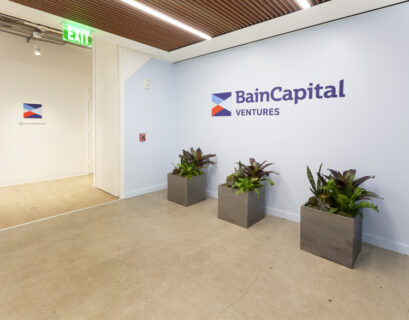Dev currently works at Multiples Private Equity since 2019. Prior to joining Multiples, he was at Kotak Investment Banking for ~1.5 years, and previously with Tresvista Financial Services. Dev is a graduate of BITS Pilani. He will be sharing his experience from his experience at Multiples focusing on sharing insights about the PE industry in India.
Interview
How did you recruit for this role? What would your advice be for potential candidates aspiring to get here? (recruiting strategy, cycle, process etc.)
Pre-MBA PE recruiting in India across most funds is a fairly standardized process. PE funds typically appoint a headhunter to scout for candidates. Most funds typically prefer candidates to have a minimum experience of ~1 year in Investment Banking / Consulting before interviewing
Typical Interview Process:
- Stage 1 (Hygiene test):
- A shortlisted candidate will initially meet two to three VPs / Principals
- These initial rounds typically tests basic hygiene – understanding of companies and industries covered by the candidate as part of his / her work experience, understanding of financial metrics, interlinking between the three financial statements, valuation methodologies typically used, interest in investing, etc.
- Stage 2 (Modelling test):
- After clearing the initial hygiene rounds, candidates typically are judged on a 3 – 4 hour case study which involves building a 3 statement financial model and an accompanying ppt on a company
- This is usually the round where most candidates get filtered out
- Stage 3 (Meeting Other Senior Members):
- Once a candidate clears the modelling round, he / she will typically interact with all other team members
- Typically other softer aspects are tested here – communication skills, compatibility with the firm’s culture, likeability as a person, etc.
- While all of these can be formalities at times, candidates have on occasion been rejected during this phase – so it is important to prepare for these rounds as well
- Stage 4 (Reference Checks and Rolling Out the Offer):
- Once most members of the fund have met and have a generally positive view on the candidate, they will do reference checks post which an offer will be handed out
- Once again, candidates on occasion have been rejected at this stage as well
What is the typical feeder profile (typical previous work experience) for this industry in general and for your firm in particular?
- Typically private equity pre MBA analysts / associates come from an engineering / CA / commerce / economics background.
- Certain funds prefer candidates from a particular background (i.e. with relevant management consulting / investment banking experience) post a degree from premier undergrad university while others are agnostic of the candidate’s previous work experience / academic background if he / she has basic analytical capabilities / financial modelling skills as most of the other skills can be honed on the job
What is your total team size and what is the typical team staffing on a case/deal?
Total team size of 16; deal team typically comprised 2/3 people (Analyst / Associate, VP / Principal, MD)
What is a typical day at work for you?
There is no typical day to be honest; Roughly ~30% of my time is consumed managing / following up on the performances of portfolio companies while the rest of my time is spent on evaluating new opportunities
What is the typical exit that people get from this role?
From a pre-MBA role, most analysts typically either end up moving to another fund or go on to pursue their MBA
What are the pros and cons about this role?
Pros – The sector agnostic nature of the role along with evaluating companies across lifecycles (Series C,D / Growth / Buyout, etc.) is extremely rewarding intellectually – most of the times, it feels like one is constantly drinking from a fire hose
Cons – As the funds operate with lean teams on each deal, it can often get quite hectic when junior members are tasked with presenting multiple opportunities to the IC in quick succession
What are your typical work hours in a week (including weekends)?
~85-90 hours a week on average
How do the responsibilities evolve as one grows in this industry into senior roles?
Very broadly, the key skills required to succeed as an investment professional in private equity primarily include:
- Raising Capital from LPs
- Building a network of promoters, bankers, experts and advisors, etc.
- Deal Structuring, Negotiation, Transaction Documentation
- Managing Portfolio Companies
- Successfully exiting existing investments at a minimum return either through an IPO / strategic sale / etc.
- Understanding of businesses and cycles
- Understanding of Valuation
While the first five skills are particularly important to succeeding as an investment professional (over the long term), the last couple skills can also be honed without having worked in private equity previously and at the entry level, candidates are typically tested on them.
Most of the responsibilities of an analyst / associate typically involve handling all the analytical work and preparing collaterals for internal reviews. Senior members (VP / Principal / MD) typically end up spending more of their time interacting / negotiating with promoters, investment bankers, lawyers, DD advisors, industry experts, etc. while having a strong handle on the landscape and attractiveness of at least 3/4 sectors
As one progresses into senior roles, one typically will be expected to develop his / her own relationships with key intermediaries (bankers, promoters, DD advisors, promoters, industry experts, etc.) while building expertise in at least 2/3 sectors
The goal is to develop the ability to be able to run an entire transaction (from origination to DD to negotiation to documentation to closing) while understanding a few sectors in depth
What would be your advice for people aspiring for a similar role?
To be quite honest, with the right combination of curiosity, grit, opportunity, experience, basic levels of intelligence, and luck, one could successfully build a career in PE.
However, that being said, there are unfortunately a very limited number of roles available both pre / post MBA as most PE funds operate with lean teams and negligible attrition (due to attractive remunerations viz. almost all other industries especially at the junior – mid levels). As a result of this, recruitment has become brutally competitive (especially post MBA) with firms applying various filters such as academic pedigree, experience, etc. to filter candidates out.
However, working in PE pre-MBA is probably one of the best experiences in financial services that one can hope for.
.











![First Principles Approach to Financial Modelling in Excel - [Episode 1] First Principles Approach to Financial Modelling in Excel - [Episode 1]](https://thenumbermonkey.com/wp-content/uploads/abacus-100x100.jpg)









